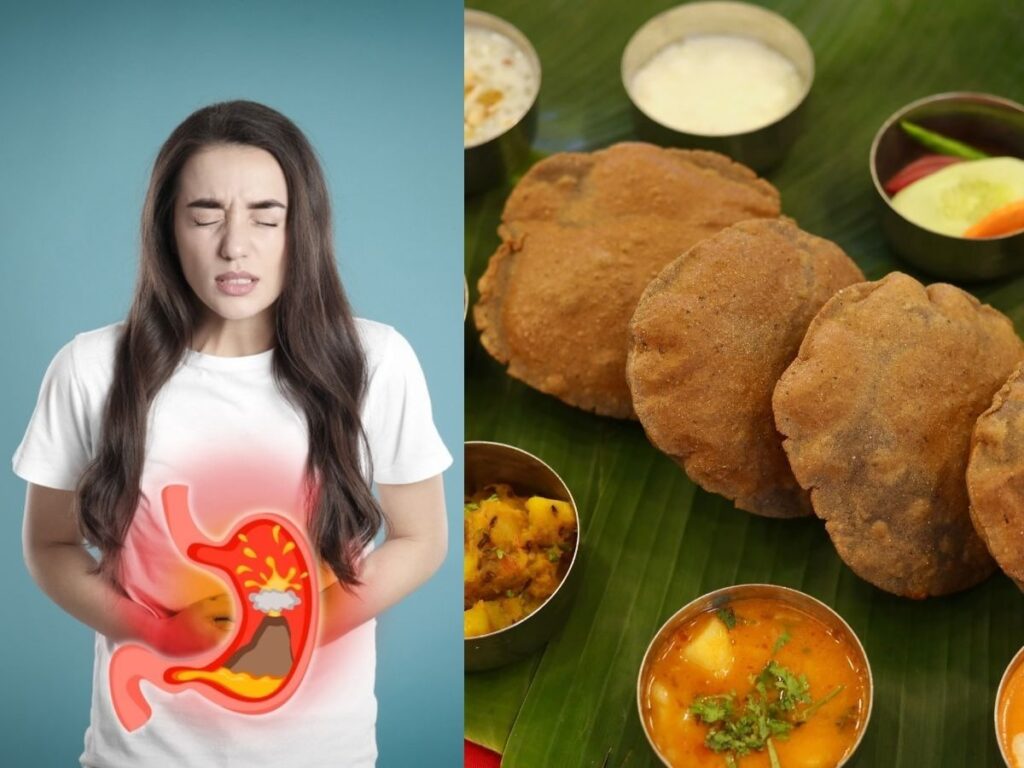Navratri is a significant festival celebrated in India, marked by nine nights of worship, fasting, and cultural festivities. During this period, many devotees observe a fast lasting nine days, consuming only a limited diet typically consisting of fruits and specially prepared fasting foods. While fasting is believed to purify the body and mind, it can sometimes lead to digestive issues such as gas and constipation, especially if one is not careful about their eating habits. Here are some effective strategies to prevent and manage these common digestive discomforts during Navratri fasting.
Understanding Digestion During Fasting
When observing a fast, the body undergoes various changes as it adjusts to a different eating pattern. The lack of regular meals can disrupt digestion, leading to bloating, gas, and constipation. It is essential to adopt the right approach to prevent these issues.
Common Causes of Gas and Constipation
- Reduced Fiber Intake: A diet limited to fruits may not provide sufficient dietary fiber, which is essential for healthy digestion.
- Dehydration: People often forget to drink enough water during fasting hours, which can lead to dehydration and hardened stools.
- Increased Consumption of Certain Foods: Some fasting foods can be high in sugars and processed ingredients, which may negatively impact digestion.
Effective Tips to Maintain Digestive Health During Navratri
1. Stay Hydrated
Hydration is critical during fasting. Make it a point to drink plenty of water during non-fasting hours to maintain optimal hydration levels. Additionally, consider herbal teas or lemon water to enhance digestion.
2. Opt for High-Fiber Fruits
Incorporate fiber-rich fruits like guavas, pears, and apples into your diet. These fruits can aid digestion and prevent constipation while providing essential nutrients.
3. Include Healthy Fats
Healthy fats such as nuts and seeds can help lubricate the digestive system and prevent constipation. Snacks like almonds, walnuts, or chia seeds can be nutritious additions to your fasting diet.
4. Eat Small, Frequent Meals
Instead of consuming large meals once a day, opt for smaller, more frequent meals. This practice can help regulate digestion and minimize discomfort.
5. Mindful Eating
Practice mindful eating by chewing food thoroughly and savoring each bite. This process can aid in proper digestion and reduce the likelihood of gas.
Example of a Fasting Meal Plan
| Time | Meal | Benefits |
|---|---|---|
| Breakfast | Fruit salad with chaat masala | Rich in vitamins and minerals, aids digestion |
| Mid-Morning Snack | Handful of mixed nuts | Provides energy and healthy fats |
| Lunch | Sabudana khichdi | High in starch, easy to digest |
| Evening Snack | Fruit smoothie | Hydrating and fiber-rich |
| Dinner | Kuttu roti with vegetable curry | Good source of fiber and essential nutrients |
Conclusion
Fasting during Navratri can be a fulfilling and enriching experience, but it also comes with its set of challenges, particularly concerning digestion. By following the tips and strategies outlined above, you can safeguard against gas and constipation. A well-planned diet, combined with hydration and mindful eating practices, will not only enhance your fasting experience but also promote better digestive health throughout the nine days and beyond.
